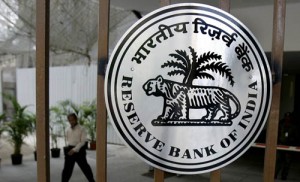 The finance ministry has asked the central bank to bar real estate firms from seeking banking licences and alter conditions relating to financial inclusion and stake dilution by promoters. It has also suggested that the RBI should disqualify any group that has exposure to real estate from seeking a banking licence.
The finance ministry has asked the central bank to bar real estate firms from seeking banking licences and alter conditions relating to financial inclusion and stake dilution by promoters. It has also suggested that the RBI should disqualify any group that has exposure to real estate from seeking a banking licence.
“A lot of issues have risen with real estate companies who got 2G licences. We would like to avoid such a situation, said an official requesting anonymity.”
The central bank had suggested that companies that derive 10% or more of their income or assets from real estate, construction or broking activities should not be eligible. The finance ministry has also opposed the RBI’s suggestions on financial inclusion and stake dilution by promoters of new banks.
The central bank had proposed to make it mandatory for new entrants to have at least 25% of their branches in rural areas with population of less than 10,000. The ministry, however, wants it to allow new banks to open one-fourth of their branches in tier-III to tier-VI cities, having a population of up to 50,000. The ministry has also differed with the central bank on the schedule and the extent of dilution by promoters. The RBI had suggested that the promoter holding in the new banks should be brought down to 15% over a period of 10 years.
But the ministry wants promoter holding to be brought down to 20% after a period of five years and other shareholders should not hold more than 10% stake. “This will help in maintaining a balance between promoters’ interest and good corporate governance norms,” the official said.
The finance ministry has also said that promoters should have an initial minimum shareholding of 40%, which should be locked for five years. The ministry has supported the RBI’s draft guidelines on initial minimum capital of Rs 500 crore, but has suggested that this should be raised to Rs 1,000 crore over a period of five years. “This will ensure that there are sufficient funds for initial smooth operations and also bank licence aspirants will have to be committed towards expansion,” the official said.
It has also opposed the Reserve Bank of India’s suggestion to restrict foreign direct investment in new banks to 49%, saying the change in norms will hurt investor sentiment.
“The rollback of the current FDI norm from 74% to 49% will not send a good signal to investors and is avoidable,” a senior finance ministry official said. “We have asked the RBI to reconsider this.”
The central bank’s suggestion was part of its comments on the draft guidelines for new bank licences, which it submitted to the finance ministry earlier this month.
The RBI was expected to issue the draft guidelines for new bank licences before the end of this month, but the differences of opinion with the finance ministry could delay the process.
The ministry has asked the RBI to ensure the guidelines clearly say that the new banks will be exempted from Press Notes 2, 3 and 4, which revamped the country’s foreign investment policy and procedures.
Without the exemption, these banks would become foreign banks if overseas investment in them crosses 50%. This would lead to imposition of the same restrictions on them that apply on foreign companies.
The government is already struggling with policy issues in respect of private lenders, such as ICICI Bank and HDFC Bank, where foreign holding is more than 50%.





